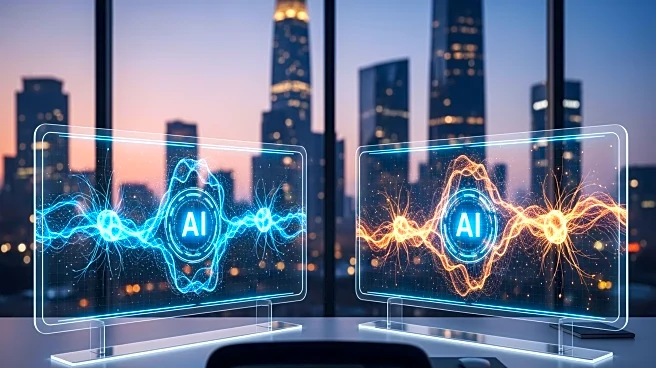What's Happening?
India's Global Capability Centres (GCCs) are projected to see a significant workforce expansion, reaching 3.46 million by 2030. This growth is driven by the increasing adoption of Artificial Intelligence
(AI) technologies, with over 58% of GCCs moving beyond AI pilot projects. The report by NLB Services highlights that nearly 70% of GCCs are investing in Generative AI, and over 60% plan to establish AI safety and governance teams by 2026. The shift towards AI-driven operations is expected to create new job roles while phasing out legacy positions. The geographic distribution of GCCs is also changing, with Tier II and III cities gaining prominence due to cost advantages.
Why It's Important?
The expansion of India's GCC workforce underscores the country's growing role as a global hub for AI and digital innovation. This development has significant implications for the global tech industry, as India continues to supply a large pool of skilled talent. The focus on AI governance and safety reflects a maturing approach to technology deployment, addressing ethical and operational challenges. The shift towards AI-native operations could lead to increased efficiency and competitiveness for businesses operating in India. Additionally, the geographic diversification of GCCs may stimulate economic growth in less developed regions, contributing to a more balanced economic landscape.
What's Next?
As GCCs continue to integrate AI into their operations, there will likely be an increased demand for specialized skills in AI governance, cybersecurity, and product management. Companies may need to invest in training and development programs to equip their workforce with the necessary skills. The Indian government may also play a role in supporting this transition through policy measures and incentives. The success of these initiatives could further solidify India's position as a leader in AI and digital transformation, attracting more international investment and collaboration.









